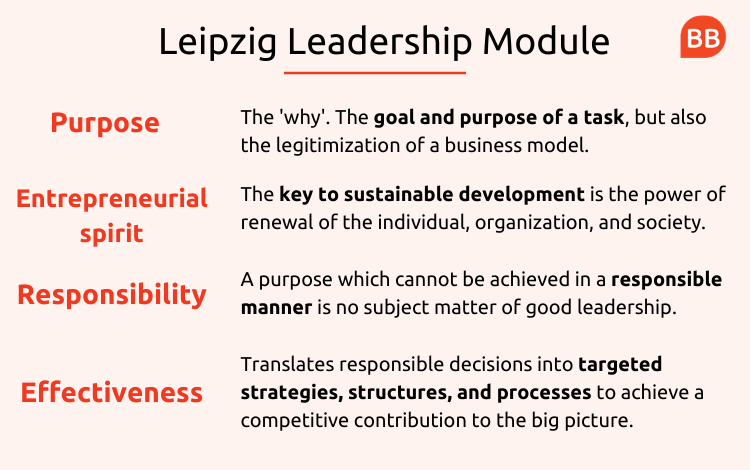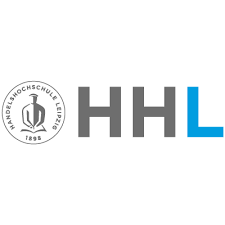The attention on these scandals speaks to how important responsible leadership has become over the last decade. With increasing scrutiny on leaders under the spotlight, corporations and organizations demand leaders with responsible practices.
Stephan Stubner, dean of Germany's HHL Leipzig Graduate School of Management, has been part of the movement to push responsible management to the forefront of the MBA curriculum. Responsible beliefs and practices, he says, have to start at business school.
Why is responsible leadership important?
A growing focus on responsible leadership at business school is reflected in the Financial Times MBA rankings, where in 2019 corporate social responsibility (CSR) was introduced to the methodology.
With rankings previously focused primarily on graduate salaries and employment rates, the move symbolizes a broader global shift away from pure profit, to the incorporation of responsible practices in business.
“Governments are increasingly asking for organizations to highlight their approach to responsibility and sustainability,” says Stephan (pictured right). “Therefore, for MBA students there is a business need to be aware of responsible leadership.”
Stephan maintains that as a business school, HHL has a duty to talk about responsible leadership, with their MBA students likely to move into influential leadership positions. “They’ll have a responsibility over money, people, and resources,” he says. “Therefore, their decisions won’t just affect the company’s bottom line, but also society.”
“We try to help students develop the right mindset, value set, and competencies to make the right decision—not only for themselves in the short term, but for all of us in the longer term," he continues. "That’s where we want to contribute.”
Stephan is aware that the increasing demand for responsible leadership is being driven by the next generation of students, too. “We see that young people are coming to us and asking how we at the school deal with responsible leadership, and how we approach our own responsibility. There is a desire to learn more about it, so students can take those practices into an organization.”
Responsible leadership on the MBA
So how can you learn how to become a responsible leader?
At HHL, Stephan explains, it starts right at the beginning. “The first week is largely social, but right from the off our focus shifts to responsible leadership."
Students are introduced to the Leipzig Leadership Model, aimed to help future leaders find orientation in today's fast moving times, and form critical and creative opinions on complex matters. The model provides a template for responsible leadership, based on four dimensions: purpose, entrepreneurial spirit, responsibility and effectiveness
Professor Timo Meynhardt, part of the core team in developing and transferring this model, explains: “In the Leipzig Leadership Model, the idea of responsibility is crucial to remind leaders that even the most attractive purpose does not justify the means.”

Throughout the MBA program, case studies in class put the student in the position of making a business decision in terms of sustainability and responsibility.
Complementing this is a co-teaching method where two professors take a case and both present different positions on what leadership approach to take. “It spurs a lot of discussion in the class,” Stephan says. “What is a good and responsible leadership approach?”
It’s this debate with your peers that makes all the difference on an MBA, Stephan asserts. He cites the value of being able to constantly reflect and discuss, and makes sure he is always asking “What do the students think?" and "How is it impacting their life goals?”
Students are asked after each session to write their own reflection notes, which is then discussed with your peers, private from the professor.
“I don’t want to tell students that this is how you should lead your life,” he says. “Instead, I simply ask they take a second to think about why you’re making a decision."
“Leadership style is linked to that self-reflection. Finding out your own goals means our coaching programs can build on individual style throughout the program.”

©HHL Leipzig via Facebook
Taking responsible leadership into your post-MBA career
In a typical corporation, Stephan explains that those most likely to discuss responsible leadership are those at the top. “But for the middle manager level, while there is a desire to talk about the topic, they often don’t have the same time; they’re busy with other demands first,” he says.
To change an organization more easily in a responsible direction, Stephan contends that those middle and senior management roles—often filled by MBA graduates—need to know and understand the value of responsible leadership too.
A shift towards responsible leadership is also being reflected in the jobs market, with the world’s biggest asset managers doubling their hiring of sustainable investing teams over the last three years.
“The value of an MBA isn’t just the tools and skills you get,” Stephan says. “Networking and discussion with peers mean you can acquire the tools to really engrain responsible leadership and take that with you as you progress in your career.”
Student Reviews
HHL Leipzig Graduate School of Management








